Modelling farmers' responses to irrigation water policies in Algeria: An economic assessment of volumetric irrigation prices and quotas in the Jijel–Taher irrigated perimeter

Authors:
In Algeria, the management of water based on a strategy of supply and subsidies continues to be applied even as the resource becomes increasingly scarce. The demand for water in Algeria continues to grow, creating an imbalance between the available water resources and uses. In this context, the state has progressively implemented irrigation water management policies, including pricing, which aims to manage demand while reducing the water price subsidy. In this article we will study the effectiveness of some water management instruments implemented in the large irrigation perimeters and offer some perspectives to improve the management of the demand for irrigation water. To do so, we investigate the effect of different water pricing and irrigation quota scenarios on changing farmers' behaviour in terms of irrigation water demand. We developed a positive mathematical programming model based on farmers' surveys and typology in a public irrigated scheme (Jijel–Taher located in northern Algeria). Two types of scenarios were simulated, including: (i) increasing volumetric prices of irrigation water in the studied irrigated areas; (ii) decreasing water quota scenarios allocated to the farmers. As expected, results show that increasing water prices may lead to a decreasing demand for irrigation water. However, this decrease in water demand only became significant at very high prices. We also found that a price of 12.5 DZD m‾3 (about 0.11 US$ m‾3), corresponding to the government production cost of water, can easily be implemented in the study area without substantial effects on farmers' gross margin. Then, water pricing does not represent a water demand management tool, but rather a tool to finance management infrastructures. Simulations also show that decreasing water quotas may lead to a decrease of irrigated areas, change in cropping patterns, and to a significant loss of farmers' gross margins for quotas below 2600 m3 ha‾¹.
